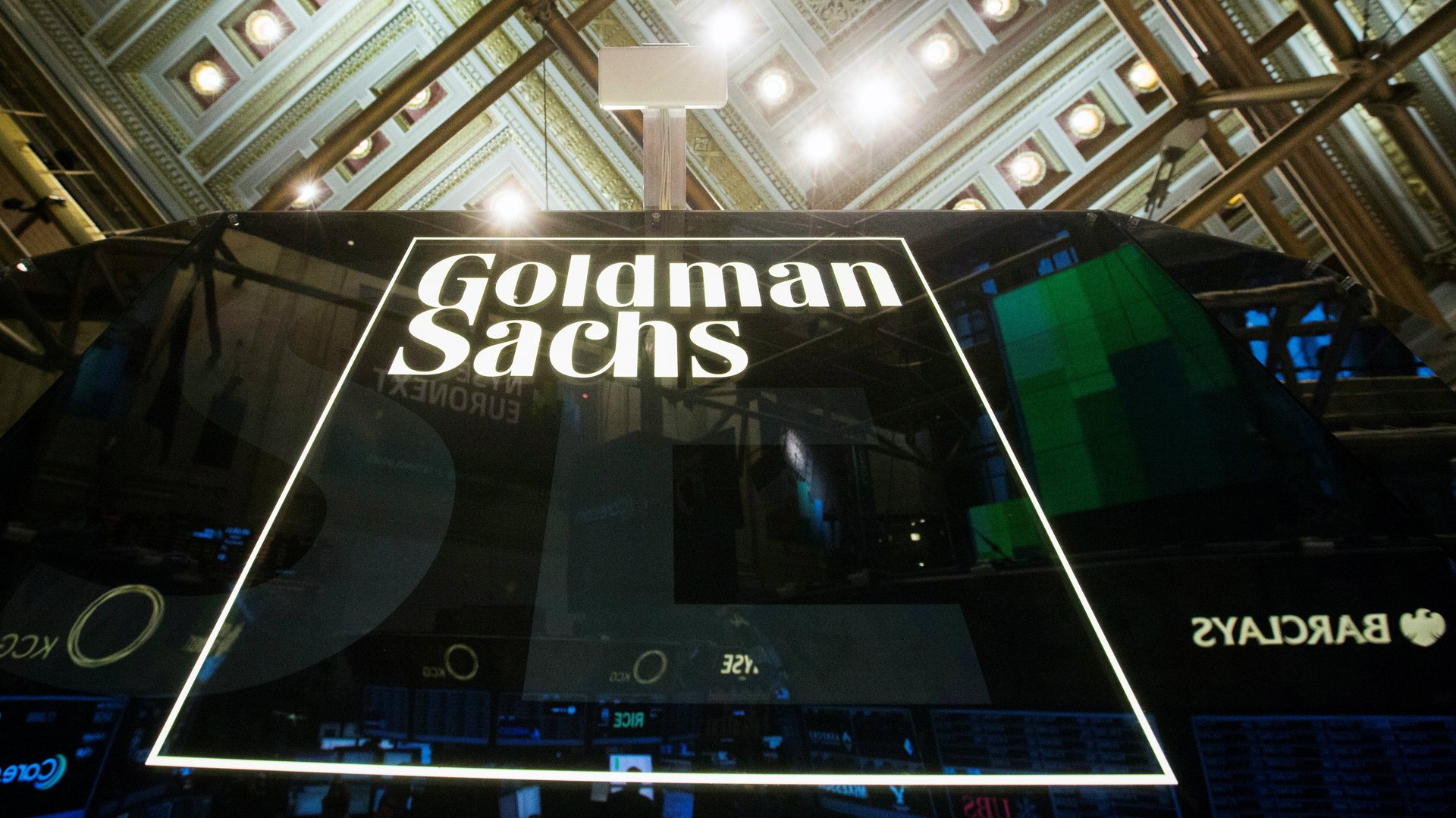Engineers have a better chance than ever of making partner at Goldman Sachs
Goldman Sachs has hired two engineers and blessed them as partners—lofty, well-paid positions that are among the most coveted on Wall Street. Their ascension suggests technologists are muscling in on a financial domain normally dominated by big shots in sales and trading.


Goldman Sachs has hired two engineers and blessed them as partners—lofty, well-paid positions that are among the most coveted on Wall Street. Their ascension suggests technologists are muscling in on a financial domain normally dominated by big shots in sales and trading.
As investment banks go head-to-head with Silicon Valley for technology talent, it’s an open question whether bringing more engineers into the highest ranks at banks will give Wall Street the advantage. Goldman’s recent promotions and hires suggests that this is its aim. According to the Wall Street Journal (paywall), engineers at the storied bank make up some 10% of the 2016 partner class, compared with 8% of the 2014 class, and now comprise about 6% of Goldman’s 450 partners overall.
But while two of the bank’s new partners may be “computer nerds” (paywall), their pedigree is still finance. Jeff Wecker, who becomes Goldman’s chief data officer, previously worked at Bridgewater Associates, the world’s biggest hedge fund. It’s the second time he’s worked at Goldman. Michael Blum will work in Goldman’s electronic-trading group after roles at high-frequency trader KCG Holdings.
Wall Street has an image problem among some computer science graduates—Goldman executives have acknowledged that some outdated technology needs an overhaul—and it remains to be seen whether finance can nurture a reliable pipeline of engineers with finance expertise. If tales of highly paid bond traders used to inspired Ivy Leaguers, Facebook founder Mark Zuckerberg is more likely to be their champion now. Former Deutsche Bank trader Denis Ignatovich said at Quartz’s Future of Work event last week in London that Wall Street paychecks aren’t always enough to compensate for the long hours and stress. After banking, Ignatovich went on to co-found an artificial intelligence firm called Aesthetic Integration.
That’s probably why Goldman has taken other steps to woo talent, such as increasing pay for programmers right out of college and relaxing its dress code. A new engineer’s base salary has likely climbed to $100,000 or more per year, with prospects for larger bonuses than before, according to Bloomberg. That compares with previous pay of around $83,000, with a bonus of $12,000.